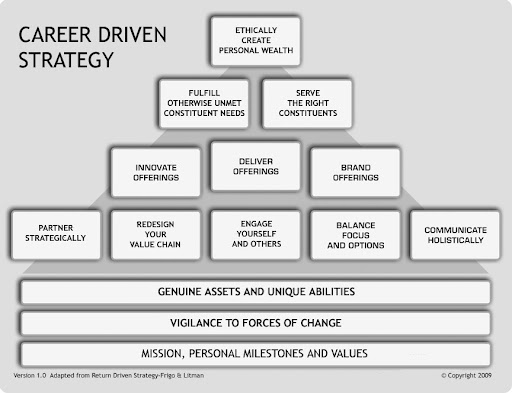Being the first doesn't necessarily mean winning. These company wars' case studies will tell you why!
| From the desk of Miles Everson: Happy Wednesday! I hope you’re all well this midweek. Today, I’m excited to share with you a useful investment analogy from my friend and colleague, Professor Joel Litman. I believe this is something we all have to keep in mind always, especially in our investment strategies. Are you ready? Keep reading below. BRACE YOURSELF! On May 1, Elon Musk and President Donald Trump will launch DOGE (Department of Government Efficiency) PHASE II. We’re just days away from a sudden turning point for the U.S. stock market–and the two most powerful men in America are behind it. This will take DOGE in a radical new direction, blindside millions of people, and have instant consequences for the entire stock market. Basically, PHASE II is the logical conclusion of everything Musk has been working on since coming to D.C. in January. It’s all set to launch in a BIG way, so it’s time to prepare. I personally believe this is essential for all of us to know too, even though not everyone is an investor or someone well-versed in investing, finance, or accounting. This move is set to affect us in one way or another. That’s why this coming Thursday, April 24 at 8:00 p.m. ET , my friend and colleague, Professor Joel Litman and his Altimetry team will bring you an update to this story. They will introduce their most valuable source in D.C. and reveal exactly what to do with your money to come out on top. I highly encourage you to tune into this summit by registering through this link . Learn four specific moves you can make with your money today to land a string of potential 100%+ returns as DOGE PHASE II plays out. Hope you can make it! See you there! |
|
Being the first doesn't necessarily mean winning. These company wars' case studies will tell you why! It’s not always the first or the best product that wins the race. Sometimes, the key to dominance lies in a completely different strategy—one that hinges on partnerships, accessibility, and content. Investment professionals and investors alike can draw critical lessons from history when evaluating today’s cutting-edge technologies. Professor Joel Litman , Chairman and CEO of Valens Research and Chief Investment Officer of Altimetry Financial Research, recently delved into this idea, highlighting a compelling case study from the past and its parallels to the AI revolution of today. A Case Study in Missed Opportunities: Betamax vs. VHS
In the mid-1970s, Sony introduced the Betamax video recorder, a technological marvel of its time. It boasted compact tapes, superior video resolution, and a quiet mechanism. By all accounts, it was an excellent product. Despite that, Betamax still failed spectacularly. Here’s what happened… Within a year of Betamax’s release, JVC launched its VHS video recorder. Unlike Betamax, VHS was inferior in almost every technical aspect. Its video cartridges were bulkier, the playback quality was poorer, and the machines themselves were noisier. … but despite these shortcomings, VHS quickly dominated the market, becoming the standard in American households. Huh? Why did VHS win? According to Professor Litman, JVC’s success was rooted not in technology but in strategy. Instead of tightly guarding its format like Sony, JVC made VHS an open standard, inviting other manufacturers to adopt it. Additionally, VHS tapes were cheaper to produce, which encouraged movie studios and distributors to release their content in the VHS format. As a result, when consumers shopped for video recorders, they found far more options and a wider selection of content with VHS. See? This lesson extends beyond video recorders. JVC’s focus on content and collaboration created a consumer ecosystem that Betamax couldn’t match, setting a precedent for how companies could dominate markets without necessarily offering the best product. In fact, a similar story unfolded in the 1980s: Apple vs. Microsoft.
There was no doubt that Apple’s computers were technically superior to those running Microsoft’s software. Yet, Microsoft won the PC war by making its software more accessible to developers. Basically, consumers gravitated towards Microsoft-based computers because they offered more applications and flexibility, creating an environment where developers and users fueled each other’s growth. Lessons for the AI Race Professor Litman says the same dynamics are now playing out in the world of artificial intelligence (AI). ChatGPT, developed by OpenAI, was the first large language model (LLM) to capture widespread attention. It demonstrated the potential of AI tools to the average consumer and became synonymous with cutting-edge AI. However, being first isn’t the same as being the best or the most enduring. Meta Platforms has entered the scene with its competing LLM tool, Llama. While Llama has made a smaller splash so far, Professor Litman believes it could become a frontrunner in the AI race for several reasons. First, Meta has access to one of the largest data sets on Earth—its vast repository of social media data. Second, and perhaps more importantly, Llama has chosen an open-source approach. By sharing its code, Meta is inviting developers to innovate and build on its platform. This openness mirrors the strategy that propelled VHS and Microsoft to success. In contrast, ChatGPT’s closed system may eventually limit its growth. Developers are more likely to gravitate toward platforms like Llama, which provide greater flexibility and transparency. … and as developers flock to open-source platforms, users will follow, drawn by the diverse applications and innovations enabled by this approach. Now, what is the implication of this story to investment professionals and investors? The history of Betamax vs. VHS and Microsoft vs. Apple serves as a powerful reminder that the best technology doesn’t always win. Instead, companies that prioritize collaboration, accessibility, and ecosystem-building often emerge as market leaders. If you’re an investor who’s evaluating opportunities in the AI sector, Professor Litman encourages you to look beyond immediate technological superiority. After all, the real winners in the field will be those that create platforms fostering widespread adoption and innovation. Whether it’s Meta’s Llama or another emerging player, the AI race is still in its early stages. Companies that succeed will be those that empower developers and offer consumers the most versatility and value. After all, as history shows, the first mover advantage may grab headlines, but the long-term winners are those who understand the true drivers of market dominance. By keeping this in mind, you’ll be well-positioned to identify and capitalize on the next big opportunity in AI. Hope you’ve found this week’s insights interesting and helpful.
Stay tuned for next Wednesday’s The Independent Investor! As of Q4 2024, the credit card balances of Americans have soared to a whopping USD 1.21 trillion. Learn more about why revenge spending might have doomed the economy in next week’s article! |

Miles Everson
CEO of MBO Partners and former Global Advisory and Consulting CEO at PwC, Everson has worked with many of the world's largest and most prominent organizations, specializing in executive management. He helps companies balance growth, reduce risk, maximize return, and excel in strategic business priorities.
He is a sought-after public speaker and contributor and has been a case study for success from Harvard Business School.
Everson is a Certified Public Accountant, a member of the American Institute of Certified Public Accountants and Minnesota Society of Certified Public Accountants. He graduated from St. Cloud State University with a B.S. in Accounting.




